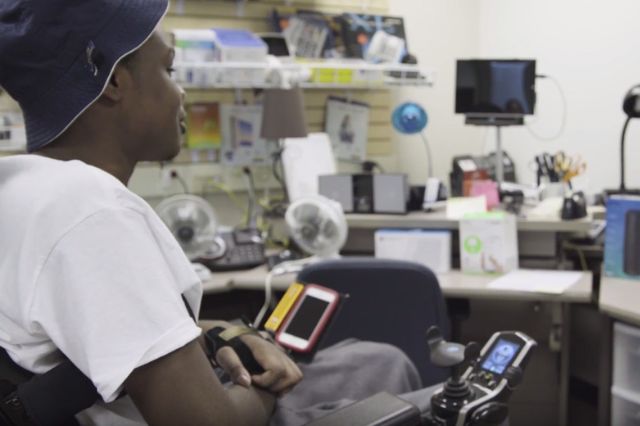Shepherd's Pharmacist Post-Doctoral Training Program
PGY1 Pharmacy Residency Program Outcomes
Shepherd Center’s pharmacy residency program builds on Doctor of Pharmacy (PharmD) education and outcomes to contribute to the development of clinical pharmacists responsible for medication-related care of patients with a wide range of conditions, eligible for board certification and postgraduate year two (PGY2) pharmacist residency training.
The Shepherd Center shall recognize those pharmacists who have successfully completed this pharmacist post-doctoral training program by awarding an appropriate certificate. It is the desire of the program that all Pharmacy Residents will successfully matriculate through the program and be awarded a certificate. The program allows for modification of a resident's schedule of learning experiences such that all can be accommodated.
PGY1 Pharmacy Residency Curriculum and Rotations
This one-year pharmacist training residency is divided into core and elective learning experiences (rotations) that are scheduled to accommodate your specific career goals while assuring that you acquire a well-rounded clinical training experience. Simultaneously, you are expected to prioritize ongoing requirements in longitudinal experiences, which occur throughout most of the residency year.
Required Core Rotations
Prior to beginning rotation and longitudinal experiences for the residency, there will be an orientation period. This time will be devoted to familiarizing the residents with the operations of the residency program.
Pharmacokinetics and Clinical Skills Orientation is designed to provide the resident with exposure to clinical activities and review topics that are essential for the resident’s success over the residency year.
Internal Medicine I is designed to provide therapeutic knowledge and development of practice skills in Acquired Brain Injury units within the hospital. The resident will review medication profiles daily to ensure appropriate indications for use and dosing, monitor for adverse effects, prevent drug interactions, and ensure proper laboratory monitoring. The residents will participate in pharmacy-physician rounding and promote optimal medication management.
Internal Medicine II is designed to provide therapeutic knowledge and development of practice skills in Spinal Cord Injury units within the hospital. The resident will review medication profiles daily to ensure appropriate indications for use and dosing, monitor for adverse effects, prevent drug interactions, and ensure proper laboratory monitoring. The residents will participate in pharmacy-physician rounding and promote optimal medication management.
Infectious disease is designed ultimately to provide therapeutic knowledge and development of practice skills in the infectious disease setting. The resident is responsible for following up on empiric/definitive therapy for the culture and sensitivity reports, and reviewing profiles for de-escalation as well as stop dates. The resident will participate in a variety of interdisciplinary activities including antibiotic stewardship activities for the hospital.
The transition of Care focuses on providing patients with a pharmacist-guided socioeconomic and pharmaceutical review of the admission and discharge processes. The residents gain knowledge and skills to ensure the safe and effective provision of medication therapy in transitions of care. The pharmacy resident is responsible for the medication reconciliation process upon admission of a patient. The pharmacist resident will conduct patient/family interviews and create a complete list of medications at home or previous facility at admission and review the medications for appropriate indications for use, appropriate dosing, the avoidance of potential drug interactions, and appropriate duration according to evidence-based medicine.
Pulmonary / Critical Care involves the provision of pharmaceutical care in all units within the hospital, with a focus on the intensive care unit. The resident is responsible for ensuring safe and effective medication use for all patients within the intensive care unit and patients on spinal cord and brain injury floors who have pulmonology consult. The resident provides pharmacokinetic, renal dosing, TPN management (if applicable), IV to PO conversions, ensures medication safety, properly documents patient care activities, and communicates with healthcare providers and patients. The resident will round 2-3 times weekly alongside pulmonologists and/or pulmonary physician assistants and attend daily multidisciplinary ICU rounds.
Compounding Sterile Preparations involves the provision of pharmaceutical care for patients compliant with United States Pharmacopeia (USP) pharmaceutical compounding. The Shepherd Center sterile compounding team is responsible for departmental USP training and compliance, specialty pharmacy operations, intrathecal pain syringe compounding, and investigational medication services.
Cardiology is designed to provide the opportunity for residents to manage and optimize cardiovascular related issues and co-morbidities on all units within the hospital, especially all patients with a cardiology consult.
Elective Rotations (Pick One Rotation)
Advanced Internal Medicine involves the provision of pharmaceutical care in all units within the hospital, Spinal Cord Injury units, and Brain Injury units. The resident will continue to develop skills learned during the required Internal Medicine rotations, now acting more independently to provide optimal clinical pharmacist services in extended services areas.
Advanced Infectious disease is designed to allow residents to gain more confidence and have more independence in acting as a pharmacist in an antimicrobial stewardship role. The resident will build upon their knowledge of antimicrobials, infectious diseases, vaccinations, etc. that they gained in the Infectious Disease core rotation. The resident will have the opportunity to attend Infection Prevention Work Group meetings, ASP meetings, Wound Prevention Workgroup, and/or P&T meetings while on rotation. The resident will collaborate with the infectious disease, critical care, and Physical Medicine and Rehabilitation (PM&R) teams to serve as the pharmacy expert on consulted patients.
Advanced Transition of Care involves the provision of pharmaceutical care in all units within the hospital and outpatient clinics. The rotation focuses on providing patients with a pharmacist-guided socioeconomic and pharmaceutical review of the discharge and post-discharge processes. The pharmacy resident is responsible for the medication reconciliation process at discharge. The pharmacy resident is also responsible for reviewing the medication profile of select patients at the Outpatient Clinic, and Shepherd Spine and Pain Institute and making therapeutic recommendations as appropriate.
Medical Writing fosters the formal development of medical writing skills and scholarship opportunities. The rotation focuses on continuous generation of publishable medical research and thought leadership. All writing is conducted with the intent of publication and dissemination including within the center, at local and national conferences, and scientific journals. The resident is responsible for choosing a publication type and topic identification with the goal of producing a manuscript of publishable quality and submission for publication.
Required Longitudinal Rotations
Research involves identifying a pharmacy practice-related issue that needs to be investigated and designing, executing, and reporting the results of the investigation. The research team supports the resident to gain skills in study design, the institutional review board (IRB) and/or ethics committee process, data collection, the presentation of research data, and publication. The project will be presented at the American Society of Health System Pharmacists (ASHP) mid-year in poster format and the Southeastern Residency Conference (SERC) in addition to any applicable committee as well as administration at Shepherd Center. The final completed project will include a manuscript suitable for publication. The resident may choose to submit the project manuscript for publication.
Previous Research Projects
- “Effect of transdermal buprenorphine use on the total daily morphine milligram equivalents of discharge opioid prescriptions among inpatient rehabilitation patients with spinal cord injury”
- “Comparison of recurrence rates for urinary tract infections in inpatient rehabilitation patients treated for 7 days versus 10 days”
- "Days of Intravenous Vancomycin Therapy in Patients with Pneumonia after Negative MRSA Nasal Screens"
- "Evaluation of Vitamin D Goal Level Achievement in Brain Injury Patients at an Inpatient Rehabilitation Center"
Current Research Projects
- “Utilization of Natalizumab beyond 2 years of therapy”
- “Statin use in ischemic stroke associated brain injury rehabilitation”
Pharmacy Education involved various activities including Mercer University Pharmacy Teaching Certificate. Throughout the residency year, the resident will apply the principles of professional education with required presentations. The rotation also involves the educational development of staff, healthcare associates, students, and patients through educational initiatives. Brief descriptions of educational initiatives are provided below.
- Mercer University Pharmacy Teaching Certificate – the resident will watch lectures, attend skills lab classes, and mentor fourth-year pharmacy students as part of the program. The resident will also develop a teaching portfolio including their teaching philosophy.
- Shepherd Seminar – a presentation series that encompasses a variety of presentation formats including in-person, virtual, interactive, didactic, discussion, and debate style presentations.
- Chief Resident – a role shared by the Shepherd Center Pharmacy Residents with responsibilities divided evenly throughout the residency year. During assigned months the Chief Resident will assist in the management and coordination of resident activities and responsibilities.
- Atlanta Pharmacy Residency Information Exchange (APRIE) – an educational residency networking series. Residents will participate in and provide lectures on residency activities occurring throughout the metro-Atlanta area.
Pharmacy Practice is intended to expand the resident's necessary competencies as a confident practitioner while providing pharmaceutical care to patients. The resident will be assigned to staff every fourth weekend (Saturday and Sunday) and weekday evening shifts as needed. In addition, the resident will staff one major holiday (Typically Thanksgiving or Christmas).
Questions?
Have a question about Shepherd Center's Pharmacy Residency program? Want to be notified about an upcoming online info session?





